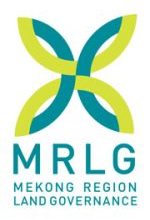

In Myanmar, the MRLG project has supported the recognition of customary tenure through an Alliance established in 2018. It has supported public consultations on the Forestry Law and draft Forest Rules, and conducted various activities such as training for CT documentation, analysis of CT systems and developed policy options for the recognition of CT based on international experiences. The project supports its partners continued engagement in the land sector despite the current political challenges.
Phase 3 of the MRLG project aims at empowering civil society and local communities, particularly ethnic and indigenous communities, to support the recognition and protection of customary land and resource rights. The phase has three main outcomes: educating CSOs and stakeholders about customary land tenure rights, generating and sharing reliable information about CT and threats to natural resource rights, and empowering local communities to improve their practices and livelihood opportunities.
The program acknowledges the current political situation in Myanmar and the need for flexibility and adaptability. It seeks to maintain a space for exchanges and engagement on land tenure security issues, create safe spaces for dialogue and learning, disseminate evidence-based policy analysis, and build alliances with regional and international platforms.
The program recognizes the importance of sensitivity to gender roles in ethnic communities and actively involves women in research and documentation processes.
Despite the challenges, the Alliance’s members remain committed to working towards positive change in Myanmar’s land governance and natural resource management.
